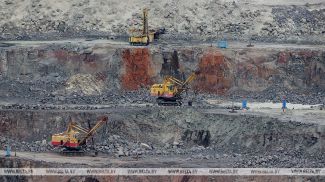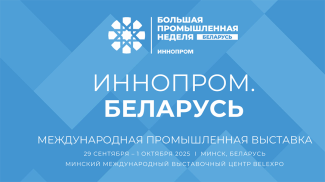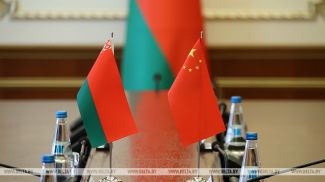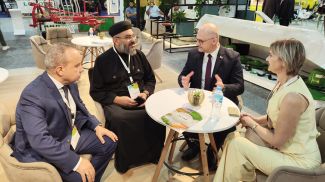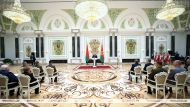MINSK, 20 November (BelTA) – The European Investment Bank (EIB) and Belarus signed first contracts worth €160 million, EIB Vice President Alexander Stubb told the media after the signing ceremony in the government office in Minsk on 20 November, BelTA has learned.
We signed the agreements for €160 million. The first agreement is with Minskvodokanal [to upgrade the Minsk water and wastewater treatment plant], which will enhance the quality of life for roughly 2 million people. The second project is to support small and medium-sized companies through Belarusian banks. The project will help create more than 2,500 jobs, Alexander Stubb said.
The agreement between Belarus and the EIB is aimed at financing the project to upgrade the Minsk water and wastewater treatment plant. The project will be co-financed by the European Bank for Reconstruction and Development. The relevant agreement was also signed in the government today. The EIB signed another two loan agreements with Belarusbank and Belagroprombank that will on-lend the funds to small and medium-sized businesses.
The documents we signed today is just the beginning of closer cooperation. Thus, we get the door open for us to take an active part in the modernization and development of the Belarusian economy, and I am delighted have this opportunity, Alexander Stubb said.
The documents have been signed in pursuance of the framework agreement that Belarus and the EIB concluded in 2017. According to the EIB vice president, other documents are in the pipeline. One of them is the M7 highway reconstruction project. There are also other interesting projects that are currently under appraisal and negotiation, he added.
Speaking about the EIB, the vice president mentioned four major areas of activity. These are SMEs, innovations, climate change and infrastructure projects. There are no caps on loans. The bank invests annually over €80 billion in top priority areas.
The EIB is one of the world's largest multilateral investment banks. Founded in 1958, the bank is headquartered in Luxembourg. The equity capital is formed by 28 countries, the European Union members. About 90% of the EIB projects are implemented within the EU, 10% outside its borders.




